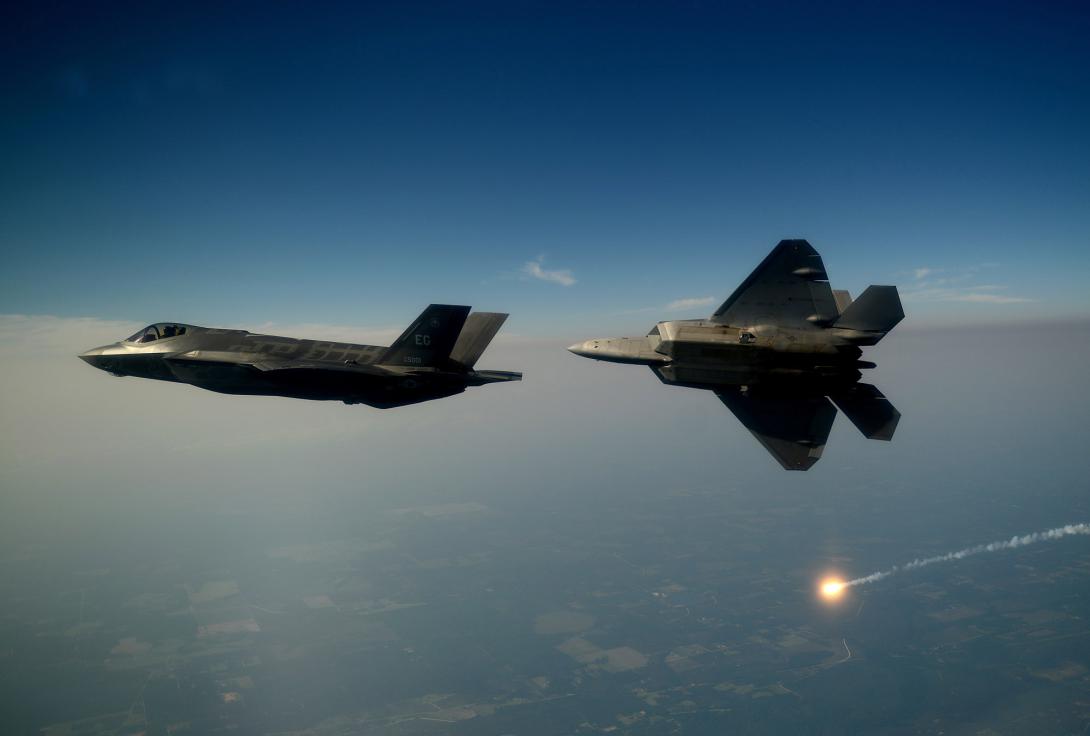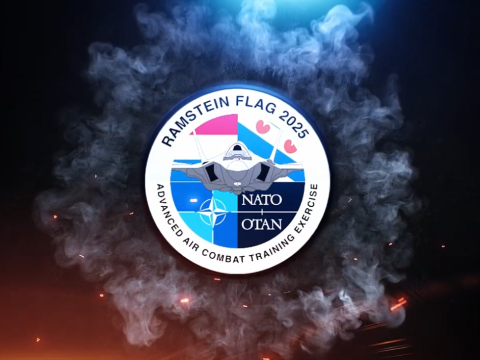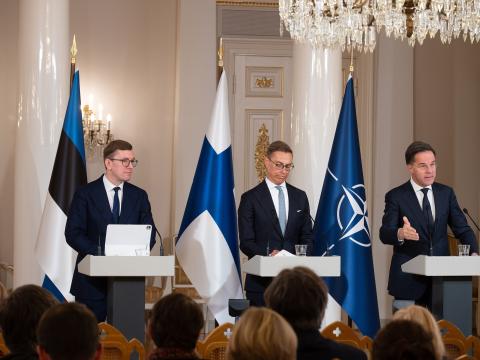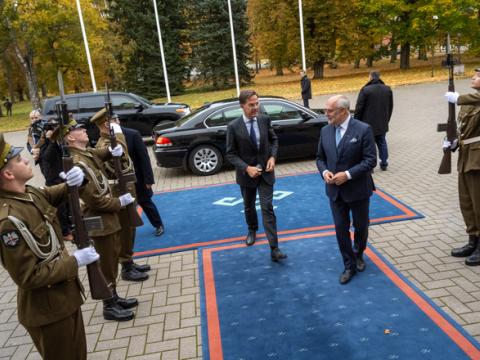NATO Officials Sounding Air and Space Power Alarm
In recent decades, air power has been NATO’s first, and sometimes only, military response to a threat. But tightened budgets and dwindling resources are placing air power in a death spiral driven by declining readiness, a shrinking force structure and an ever-smaller residual fighting capacity, say NATO’s foremost experts on air and space power.
“Air power is always one of the first things we use in all conflicts of the last 20 years. We’ve used it as a tool of preference for the politicians; yet if you look at the reductions and budget cuts, they hurt air power the most,” says Air Cdre. Madelein Spit, Royal Netherlands Air Force, who serves as assistant director of the Joint Air Power Competence Centre (JAPCC), NATO’s center of excellence for air and space power.
It is logical, Cdre. Spit points out, for nations to eliminate air and space systems because they can “save a lot of money by killing one program,” but with so many nations cutting so drastically, the allies may soon be unable to fulfill the commitments they’ve made and could face losses on the battlefield. “In the end, what’s at stake is the security of the entire alliance. We are an alliance of 28 nations, and we vowed to each other that we would help in case something went bad,” she declares. “Worst-case scenario is that we won’t be able to live up to our promises to the nations that are part of the alliance. We’ll have to let someone down,” the commodore says.
Based on recent conflicts, the general public may believe NATO enjoys tremendous air power superiority. On the other hand, recent foes were not a threat in the air—but future enemies might be. “Obviously, we are all looking at what Russia is doing right now in the East. If we would have to build a full-blown air defense against an opponent like that, that will be much more difficult than going on a mission in a nation where there’s hardly any air power to speak of. We sort of put ourselves a little bit asleep because in the last 15 to 20 years we weren’t challenged,” she says.
Cdre. Spit paints a bleak picture of NATO’s current capabilities and indicates the situation likely will grow worse. Some countries, she says, have cut the number of aircraft to half of what they were 20 years ago. Multiple nations have reduced planned purchases of F-35 joint strike fighters, for example, and the number of air squadrons and airlift projects keeps getting smaller. “Air defense systems have gone down in Europe and also in the United States. We just don’t have that many systems anymore,” she reports. “We did some upgrades, which were necessary, but we diminished numbers drastically. If you look at Patriot systems, the number in Europe has gone down. Hawk has been almost obsolete.”
Cdre. Spit’s declarations are backed by the JAPCC’s multipart, comprehensive study produced by the Future Vector Project, which began in 2012. Project officials produced three reports. The first, “Present Paradox-Future Challenge,” simply identified the problem. The paradox is that nations continue to rely heavily on air power during times of war, but at the same time they are drastically cutting funding for air and space programs. The second and third reports, “Air and Space Power in NATO-Future Vector,” parts one and two, examined air power issues from political, strategic and military perspectives.
The reports are a series of essays by some of NATO’s leading experts and offer a total of 88 recommendations within eight broad areas, including political and military strategic aspects; budget; capabilities; air command and control; and space and cyber. “All that put together was telling the world we have a problem. The next phase would be to resolve how we take care of this,” she says.
Cdre. Spit stresses the importance of space and cyber. “It has been neglected because it’s expensive, and people are just a little bit iffy when you’re looking at space and cyber. People don’t really understand what it is, and they take it more or less for granted,” she says. “And then they are completely devastated when it’s not there.”
Increased spending is not the only possible solution. Given that defense budgets around the world will likely continue to tighten, smarter spending is critical. The allied nations have a history of pooling resources to save money. Cdre. Spit offers some examples. Several nations purchased a fleet of C-17s at Pápa Air Base in Hungary, and other countries can purchase air time when the planes are needed. Also, a fleet of Airborne Warning and Control System (AWACS) aircraft was financed through NATO. And multiple nations have helped construct schools for training pilots.
“We have initiatives to share weapons, especially expensive ones, to put them in one pool, and the nations can all go to that same pool and not all have their own reserves, which would be very expensive to maintain. Initiatives like that have been out there all along, but we need to make much more use of that,” Cdre. Spit states. “One of the good things about the austere financial climate is that we are forced to look much closer to cooperation, and we have, but it’s still not enough.”
She also cites a need to work with industry and academia. “It is not only trying to get more money in the defense budget. It is also spending it more wisely and making sure that industry keeps up with us instead of coming up with a modification every two years that costs billions and that they grow rich on when it could have been done in a different way. If you team up industry, academia, institutes and the military, you can find a mutually beneficial way ahead for all of us.”
Ideally, the allied nations would establish spending priorities based on the needs of the alliance rather than their individual national needs, but that is a hard sell, she admits. “We’re using the national budgets for schooling and hospitals and welfare and all that, which is all very important, but we sort of don’t want to pay for defense anymore. That’s a message that has to go to a very high level, and that can take years to reach everyone because politicians will not like this message if their electorate doesn’t like it,” Cdre. Spit says.
In most Western nations, convincing the politicians requires convincing the electorate, so JAPCC officials are sounding the alarm wherever they can. “The Future Vector Project is more or less a huge wake-up call to anyone and everyone who is prepared to listen to us,” she explains.
She describes defense spending as insurance. Someone who has never experienced fire or flood may resent the insurance payments, but they are glad to have made those payments when tragedy strikes. “It is not such a safe world that we are living in, and the freedom we have in the Western world you cannot take for granted. Someone will come and grab it from you if you do not prepare for the worst,” she concludes.







Comments